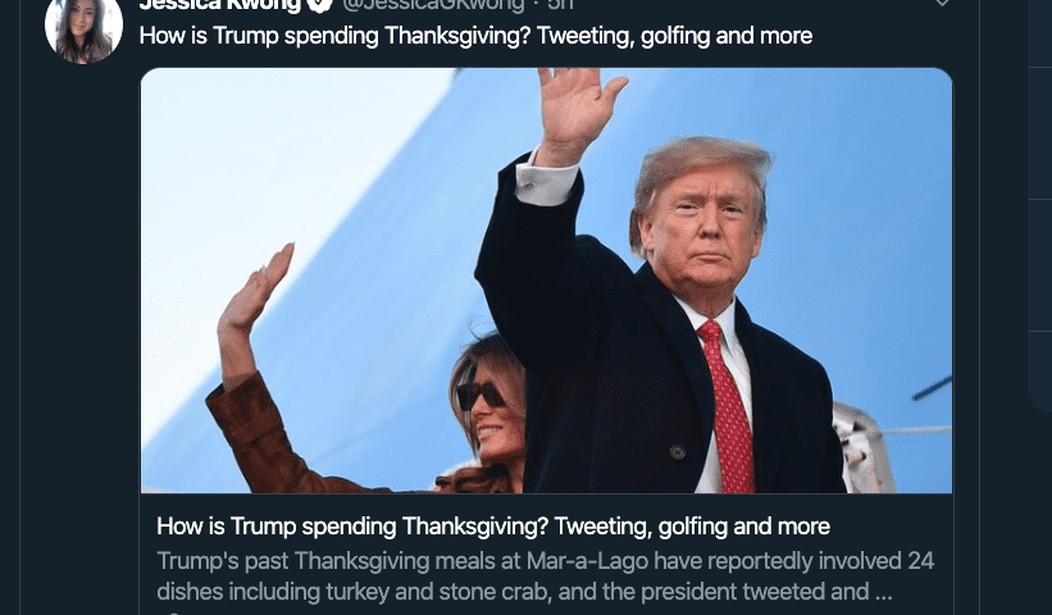In the immediate aftermath of the Paris terror attacks, a commenter on one of P J Media’s posts asked what seemed like an honest question.
The gist of which was: will somebody explain to me why the PJM columnists are so dismissive and hostile to the only presidential candidate who promises to really do something about the terrorists?
While the commenter didn’t name a candidate, it’s clear that he or she was talking about Donald Trump.
Other alarming reports were coming in, and I did not follow the comment thread on that particular post long enough to know if anybody ever answered the question.
It is entirely possible that the cohort at PJ Media — in both the pro and anti-Trump camps — figured that the answer was so obvious it should not have to be asked. I think the question of why the Republican establishment is so adverse to this particular outsider continues to need answering, especially with Iowa on the horizon.
So-called “mainstream” Republicans have argued that Trump cannot win. They warn that the dreaded Democrat coalition — people of color (most specifically Hispanics in Trump’s case), single women, urban progressives of both sexes, and the LGBT communities — will join with an undetermined percentage of moderate-left independents and deliver the White House to Hillary Clinton.
Establishment voices have lamented that against such a weak, compromised candidate as Hillary, 2016 should be a slam-dunk for the GOP, but for the rabble-rousing interloper who would run away with the party’s base.
Beyond the question of his electability, old-guard Republicans routinely characterize Trump as utterly out of his depth, often incoherent, and possibly dangerous.
But they have not persuaded. There are alternative interpretations to be considered. Though the establishment warns that Republicans will lose with Trump atop the ticket, there’s also the sense that they are also worried that he might win. There’s trouble ahead for any political class if a rogue outsider with only a critical and oppositional interest in the entrenched hierarchy wins a general election.
It’s a long way from the clown car to Party Enemy #1. A recap of how the demonization of Trump evolved illuminates how serious a threat they now believe him to be.
We’re talking here about the way things are done.
*
Carnival Barker. Blowhard. Not a serious candidate. A joke. That was the initial assessment.
Krauthammer: “The greatest reality show in history.”
In the early weeks of the campaign, a requisite side-note was always sounded with the derision: “Of course, there’s no way under the sun that he could ever actually win.” The Republican establishment doesn’t say that anymore.
Next came charges that Trump was not a conservative, or even a real Republican. Everything from Hillary’s guest appearance at Trump’s wedding to bipartisan political contributions to unapologetic use of imminent domain were fodder for the assertion that Trump was actually a liberal Democrat, potentially the ultimate RINO, and that his run was nothing more than a grand publicity stunt.
There was even conjecture that he might be a Democrat stalking horse, whose early populist appeal and ultimate unacceptability would set the stage for Bill Clinton’s arrival as first gentleman.
When Trump said things that would damage traditional, establishment candidates and walked away unscathed, the narrative of his Republican detractors became more dire. No Republican rival took the bait on whether they would be comfortable with the nuclear button at the fingertips of a brash businessman with no government experience, but a more subtle net of aspersion was cast.
Accusations of racism were passionate and blunt coming from the left, but Trump’s GOP adversaries couched their criticisms, assailed the impropriety of his rhetoric, saying in so many words that this is not America, not who we are as a people.
Charges of appealing to fear and racial xenophobia were leveled. Lower-tier candidates lashed out at the real estate tycoon, and then bowed out.
Soon the RNC demanded the pledge that Trump refused to make at the first debate: that he would support the party’s eventual nominee. They got their pledge, and also their retail frontrunner. Still, rumors circulated of an establishment effort to convince primary voters that everything bad they’d said about Trump was true.
That’s where we stand today, with news that presidential candidate John Kasich’s Super-Pac will spend millions on a campaign to undermine Trump’s candidacy, similar to the way Governor Romney devoted millions to derailing Newt Gingrich in 2012.
Only this time the strategy is not to stop a rival, but a groundswell.
*
The Republican establishment believes that Trump’s a loser, that he might destroy the Republican Party. But they also know that if he wins there will be considerable movement in the tectonic plates which form the crust of political planet Earth.
Finally, it’s important to bear in mind that for every Republican who thinks about Trump the way the establishment does, there are more, potentially many more, who don’t.
Like Trump or lump Trump, that’s where we go from here.









Join the conversation as a VIP Member